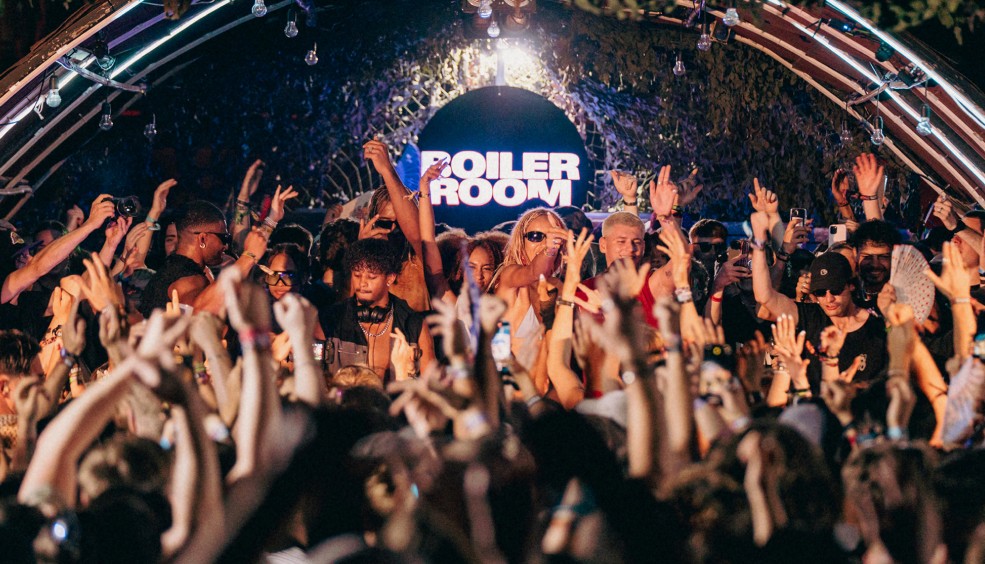Vienna’s 5 best clubs
By listening Vienna, comes to mind the Strauss Waltzes or famous Philharmonic, ringing in great baroque churches. But the Austrian capitalhas other great temples: the electronic music ones, found along the Danube Canal, under the Riesenrad, in the Gürtel or in the backyard.
Since the Vienna Sound emerged in the early nineties from the hand of duo Kruder and Dorfmeister Dj, who created an international sound that has evolved musically to reach great strength.
Here are some clues to follow the Viennese sound:
1.- Flex
The Flex has one of the best sound systems in Vienna and this is something that should now already know all across Europe. In the old premises of the U-Bahn, turned to a club with no volume problems, which, as a rule, encourages international Djs invited to the house as DJ Hell, Trentemøller or Carl Craig, and makes possible their best performances on the decks. Tuesdays and Saturdays are a fixed date for electronic lovers. And on the cozy terrace looking directly at the Danube Canal can kick off the relaxed nights.
Donaukanal – Augartenbrücke 1010 Wien
2.- Club Fluc
Cerca de la Noria Gigante, se ha establecido en la entrada del Prater un local subterráneo. El Fluc y el Fluc Wanne en el sótano están imbuidos por la electrónica y su repertorio abarca desde actuaciones Noise vanguardistas hasta desenfadadas fiestas disco de estilo Indie.
Club Fluc
Praterstern 5 1020 Wien
3.- Pratersauna
A little further, in the Prater, the Pratersauna is one of the hottest clubs in the city dedicated to electronic music. The Pratersauna is also the center of this genre’s festivals. Grelle Forelleen the Spittelauer Lände is also causing quite a buzz lately in the world, offering a high-class DJ’s lineup during the whole weekend.
Pratersauna
Waldsteingartenstraße 135 1020 Wien
4.- Rhiz
Although at first glance, Avenue Gürtel is not one of the most picturesque places in Vienna, under the suburban’s arches have been established new local music. Venues as rhiz has been a reference for years, with sessions and performances daily live. A completely transparent venue in which brings together fans of electronic music.
Rhiz
Lerchenfelder Gürtel, Stadtbahnbögen 37-38 1080 Wien
5.- Elektro Gönner
Despite being located in a somewhat hidden in the backyard of the Mariahilfer Straße shopping street, the Elektro Gönner has become a popular meeting point. A minimalist space, which had been an old electronics store, where art installations and video are projected. Frequented mainly by architects, artists and musicians, it is a place to put the finishing touch to the night thanks to its late closing time.
Elektro Gönner
Mariahilfer Straße 101/1 1060 Wien
Why not take a trip to Viena? Have a look at our flights here!
more info
A city that sounds like music
With a deeply tradition of music, Leipzig has been home to the renowned musicians and composers from all times, for the likes of Johan Sebastian Bach, Richard Wagner, Schumann or Mendelssohn. Music and culture is in every corner of the city, in the habitual concerts in Augustusplatz or in the different music festivals of every music style that the city offers.
Also known as Heldenstadt (City of Heroes), Leipzig was crucible for the revolution against the communist dictatorship in Eastern Germany, in a non-violent revolution that was called Friedliche Revolution and that ended up with the fall of the Wall in Berlin in 1989.
Baroque, neoclassical and modernist architecture blends with the buildings of the Soviet-era in Leipzig and there are many shops, restaurants, cafés and clubs in the city center.
A place that shows how the city is constantly culturally evolving is Spinnerei, (http://www.spinnerei.de/ , Spinnereistraße 7 ), an old cotton spinning mill in the district of Lindenau that is now a big factory for culture diffusion where talent and art from the artists of the so-called “New School Of Leipzig”. You can visit workshops, exhibition gallerys and Art shops, asist the cinema forums and eat at their restaurants.
If you are interested in the History of Music in Leipzig you have plenty of museums and interesting places to visit
Museum of Musical Instruments
You will enjoy of one of the most important collections in the world and discover a good perspective of the History of Music of the city
Bach's Museum
You will discover Bach, the main artist in baroque german musical style everywhere in the city. Especially in this museum which opened in 2010. An interactive exhibition that present the life and works of Johann Sebastian Bach.
Mendelssohn's museum-house
The last home for Felix Mendelssohn, a late Biedermeier-style house where he moved with his family in 1845, is since 1997 the composer's museum where you will see the original furniture and some of his objects.
Gewandhaus concert hall
Headquarters of the Gewandhaus orchestra. Founded in 1743 and directed for a long time by Kurt Masur, one of the promoters of the peaceful Leipzig's revolution. The main attraction is the visit to the impressive 6,638 pipe organ!
But there is not only music in Leipzig. Auerbachs Keller, a famous restaurant , is a must in the city. Here , Johann Wolfgang von Goethe spent long times as a student and now is full of students and young people from all over the world. It was founded in 1525 by a doctor in his own home cellar.
History has its own place as well in Mädle, an old drugstore which is now a restaurant and a night pub. In Bergstrasse 19, there is also a Saxon food restaurant Thüringer Hof where Lutero used to go.
Notice that there is a Flea Market in Leipzig on the last weekend of the month. They say it is the eldest and the biggest in Europe
Picture Gewandhaus by Andreas Praefcke/ Picture Leipzig by Tino Strauss / Picture Bach by nalocos.blogspot.com
more infoSHOPPING SPECIAL: 7 UNMISSABLE DESTINATIONS
London, Milan, Berlin, A Coruña, Paris, Barcelona and Stockholm are our favourite cities for shopping tourism. Essential destinations for shopaholics!
more infoTen things to do in Malta when the good weather arrives
Music, art, fireworks, ice-cold beers and endless nights on the beach. When the good weather arrives, Malta comes alive!
more info




